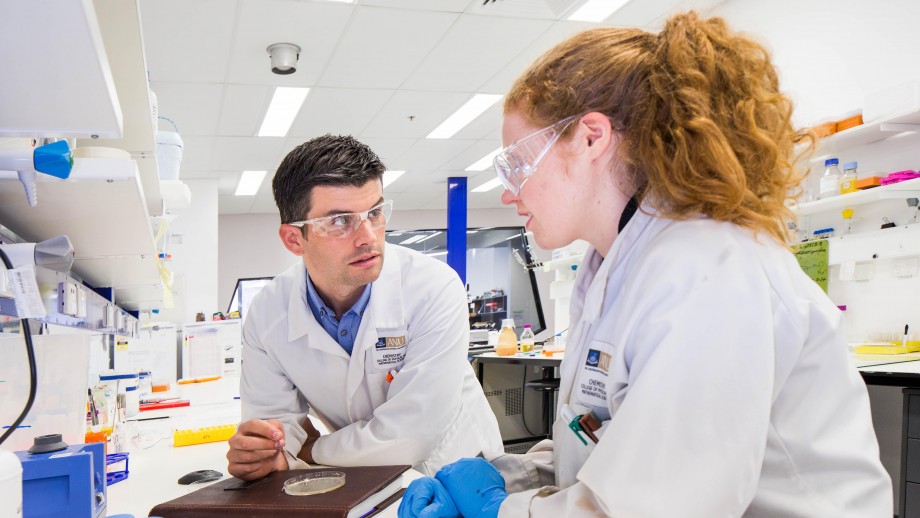ANU wins $43 million in new ARC funding
The Australian National University (ANU) has won more than $43 million in Australian Research Council (ARC) funding for 91 proposals, including projects to help clean up space junk and support the repatriation of Indigenous human remains.
In the latest ARC funding round, announced by Education Minister the Hon Simon Birmingham, ANU won funding for 15 Future Fellowships, 26 Discovery Early Career Research Awards (DECRAs), 46 Discovery Projects and four Linkage Infrastructure Equipment and Facilities (LIEF) grants.
ANU Vice-Chancellor Professor Brian Schmidt AC said the ARC funding highlighted the breadth and significance of the University’s world-leading research.
“The latest ARC round is a magnificent outcome for ANU and ensures our researchers will continue to work on solving the problems that face the nation and the world,” Professor Schmidt said.
“On behalf of the University, I congratulate all of the winners and look forward to seeing the results of their ongoing research.”
A full list of successful projects is available on the ARC website.
Among the successful grants is a $1.2 million LIEF grant to Dr Cressida Fforde from the National Centre for Indigenous Studies (NCIS) at ANU.
Dr Fforde will lead a collaborative project that aims to build a digital facility to support the repatriation of Indigenous human remains.
NCIS Director Professor Mick Dodson said repatriation contributed to reconciliation and Indigenous healing and wellbeing, and built on the ARC Linkage-funded Return, Reconcile and Renew project, led by ANU.
He said the new project would involve collaboration with Professor Daryle Rigney from Flinders University, as well as key indigenous researchers, and organisations across Australia and in the United States, New Zealand, the Netherlands and Germany.
Associate Professor Celine d’Orgeville, from the ANU Advanced Instrumentation and Technology Centre (AITC) at Mount Stromlo, also won a$502,000 LIEF grant to help build a new laser system for the first Australian laser guide star.
The laser guide star system will be crucial for civil and defence telescopes such as the new Giant Magellan Telescope under construction in Chile, as well as systems to be used to track debris in space.
“The ground-based telescopes used to study the universe, image satellites or track space debris all require laser guide star adaptive optics to defeat the blurring caused by atmospheric turbulence,” Associate Professor d’Orgeville said.
“The semiconductor guide star laser is a key component of these systems, and the AITC will now be in a position to provide a complete solution to the problem. I am thrilled that the Australian Research Council is supporting our efforts in this space.”
Associate Professor Nerilie Abram, from the Research School of Earth Sciences, won a $933,000 ARC Future Fellowship to work on climate change and rainfall in Australia, and help develop strategies to secure Australia’s water resources.
“It is very exciting to be given this opportunity to push forward my research on climate change and what it means for rainfall in Australia,” Dr Abram said.
“We’re already seeing rainfall patterns changing over some parts Australia, but it isn’t clear whether these changes are permanent responses to climate change or if we can reverse them. That’s a problem I’m looking forward to tackling.”
Dr Marcus Doherty from the Research School of Physics and Engineering, and Associate Professor Sharon Bessell, Director of Research at the Crawford School of Public Policy, won Discovery Project grants.
Dr Bessell’s $531,000 grant is for a project to help find ways to alleviate child poverty in Indonesia. However, she said the research would have global implications.
“I am incredibly grateful to the ARC for funding this research – it is really funding a vision, a dream, that we can do much more to address childhood poverty in the developing world,” Dr Bessell said.
“This research is about finding ways to support children who live in circumstances that no child should ever have to face.”
Dr Doherty secured $450,000 for a project to build and demonstrate advanced quantum microscopes in Australia.
“The project will use the microscopes to produce nanoscale images of electric fields of individual electric charges and molecules in ambient conditions,” he said.
Dr Doherty also secured a $360,000 DECRA for research into diamond quantum technologies.
Among the other DECRA recipients is Dr Amy King, from the Coral Bell School of Asia Pacific Affairs at the College of Asia and the Pacific.
Dr King won $364,000 to examine China’s role in shaping the post-World War II international economic order, and to help policymakers understand how China seeks to shape the global economy.
